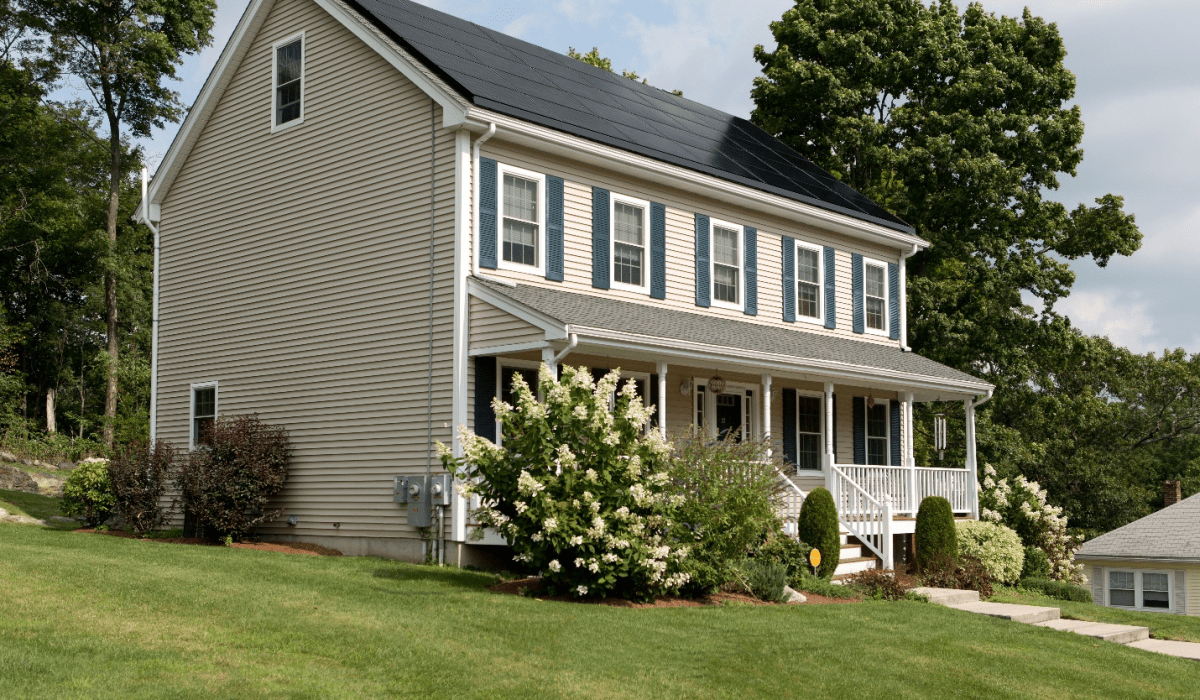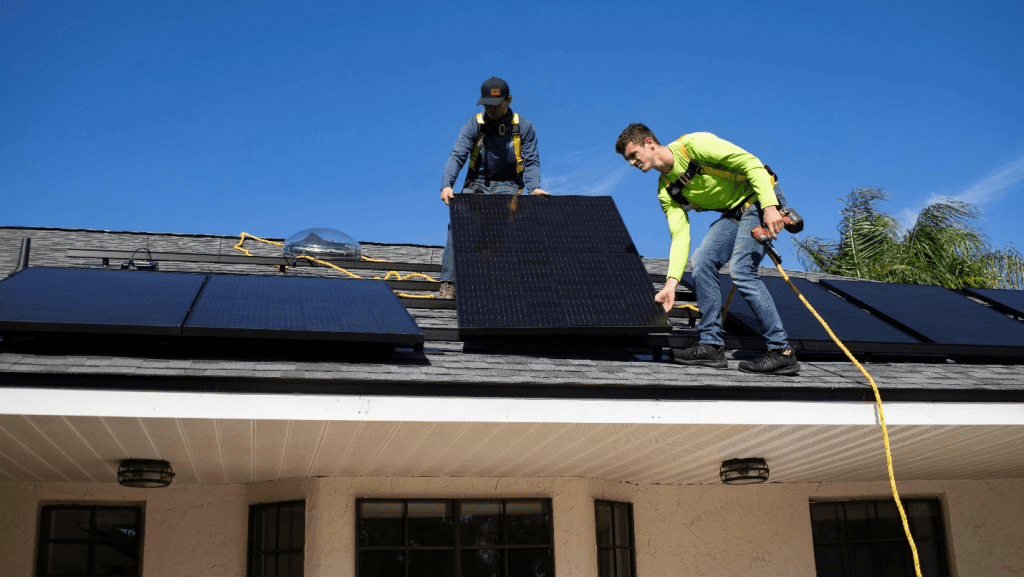11 Economic Benefits of Solar Energy
Key takeaways
- Solar power creates cheaper electricity, leading to more spending power to boost the economy.
- Energy independence and unlimited supply frees people and businesses from the mercy of soaring energy prices or sudden shortages.
- Solar energy economics means more money in your pocket and more value in your property.

Table of Contents
The big economic impacts of solar energy
We often focus on how solar energy benefits the individual households or businesses investing in it, but if you scale up, the impact on broader society can also be profound. These benefits are enhanced even more by government incentives like Solsmart in the U.S., which offers free technical assistance to towns and county governments that are serious about embracing solar.
Here are our top 4 socio-economic benefits of solar PV adoption.
1. It reduces energy costs
Ever-soaring energy bills are a nightmare for families and businesses alike. This squeezes household budgets and profit margins, putting people under huge financial strain and threatening to push SMEs out of business.
Having alternatives to hand like solar PV is a great way to reduce dependence on volatile energy markets. It makes energy bills more manageable and predictable, increasing spending power and boosting the economy overall.
2. It creates jobs
3. It optimizes land use
4. It boosts sustainability and resilience
Solar power is incredibly sustainable. Sunshine is an infinite resource – it’s never going to run out – and it can’t suddenly become scarce or expensive due to a market shock or problems in the supply chain. Because of this, having strong access to solar power will make a community or country far more resilient.
Plus, using solar power doesn’t create any harmful emissions that damage human health or the environment. You don’t have to spend money as a country just cleaning up the physical harm caused by using it. From an economic perspective, this makes it very attractive indeed.

Economic benefits of solar energy for homeowners and businesses
Perhaps more than any other type of power generation, using a solar PV system delivers swift and dependable benefits for households and small businesses. That’s because, unlike the alternatives, you’re in control. You set it up how you want, designed for the level of demand that you need. You can decide whether to store electricity and use it at any time of day. And best of all, if it ever starts to turn a profit, that profit is yours to keep.
Here are the five biggest benefits for homeowners and businesses.
1. It reduces your utility bills
2. You waste less energy and avoid peak hour charges
An energy storage system means storing excess power in batteries rather than having to use it right away as soon as it’s generated.
This means the energy doesn’t go to waste. It also means you aren’t hit by “peak hour” electricity prices, which usually come in during the evening when its dark and your PV has stopped working for the day. Instead of paying top dollar, you can simply drain power from the battery during this time – for free.
3. You get government incentives
4. You become power-independent
5. It boosts your property value
Having access to your own, independent source of power isn’t only an investment for you, but also for anyone who might live in your house in the future. That means a high-quality solar PV system can also increase your property value in the long term.

What are the economic benefits of solar energy for installers?
As the solar industry continues to grow, contractors, builders, and dedicated installers of the technology have new opportunities coming their way, too. That means…
1. You can grow your customer base
Having the technical skills to install solar PV systems means you can branch out to more kinds of projects, diversifying your clients and significantly growing your business. It’s a great way to increase your earnings and ensure a steady supply of work.
2. You’ll Be in Short Supply!
What’s more, skilled installers are in very high demand. That means qualified installers will find themselves with plentiful jobs and customers. It also means you’re unlikely to be competing hard over price and can get paid well for your valuable services. It’s a good idea to get into the market now, though, while you’re still in relatively short supply.
3. It’s a Very Efficient Business Model

Conclusion: Is solar energy worth it in 2024?
As a planet, we’ve barely begun to tap the full economic potential of solar energy. Every 1.5 hours, enough sunlight hits the earth to cover the whole world’s electricity needs for an entire year, but only a tiny fraction of this is being harnessed…yet.
The earlier you decide to switch to solar, the faster you can reap the rewards and start seeing a return on investment. These savings will always be valuable of course, but right now, government incentives and the chance to sell excess electricity to the grid means it’s an especially good time to take the leap. If you’ve been weighing up the choice for a while, make 2024 the year you finally make it happen.
Want to learn more about designing a solar installation that will maximize the benefits and create faster return on investment? Give us a call or drop us a message today.
